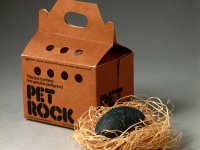Thank you @Poolplaya9, for taking the time for a well reasoned argument. I'd like to think the smaller pockets would just make me try harder, but I'd also like to think I can dunk a basketball, and drive a golf ball 300 yards. :wink:
I'll take some solace in the idea it's more about not frustrating my friends.
I spend a lot of time around (not playing; photographing) sports like soccer, tennis, volleyball... they seem heavily regulated as to venue, exacting measurements, no vendor creativity in the size or weight of a basketball, or width of a rim. It's interesting Billiards, despite a lot of organized national and international competitive play, has matured without a similar level of rigor.
Imagine if Adidas decided it's soccer balls would be 2" larger, or Spaulding decided basketball goals should be slightly oval. Heck, a slight deflation in a football eclipsed wars and elections for a few weeks.
Not complaining, just wondering how pool came to escape the rather obsessive regulators that other sports endure/enjoy?
I'll take some solace in the idea it's more about not frustrating my friends.
I spend a lot of time around (not playing; photographing) sports like soccer, tennis, volleyball... they seem heavily regulated as to venue, exacting measurements, no vendor creativity in the size or weight of a basketball, or width of a rim. It's interesting Billiards, despite a lot of organized national and international competitive play, has matured without a similar level of rigor.
Imagine if Adidas decided it's soccer balls would be 2" larger, or Spaulding decided basketball goals should be slightly oval. Heck, a slight deflation in a football eclipsed wars and elections for a few weeks.
Not complaining, just wondering how pool came to escape the rather obsessive regulators that other sports endure/enjoy?



